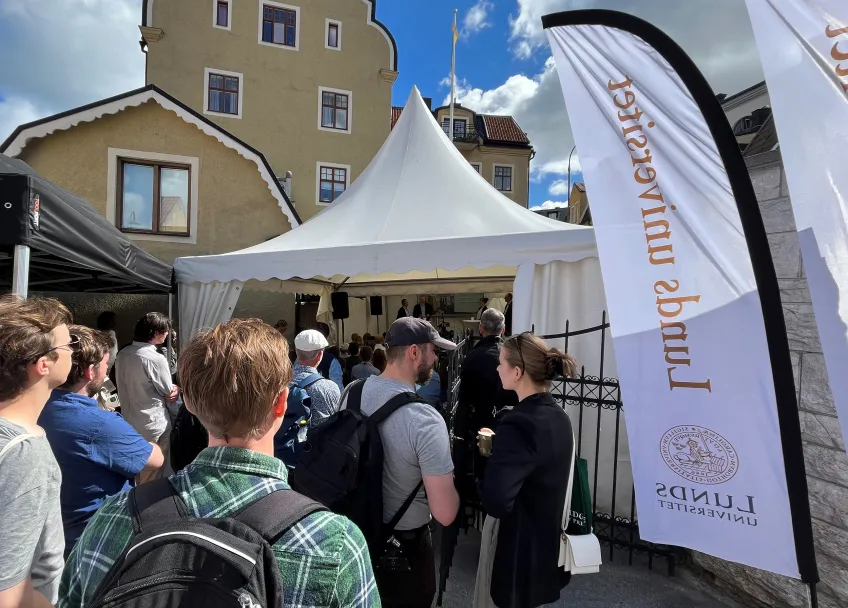”Universities play an important role in a democracy. This makes it particularly important that we are present in Almedalen and contribute to the discussions,” says Lund University's Vice-Chancellor Erik Renström.
Erik Renström highlights the strong commitment of staff as a driving force behind the programme content, which he sees as an expression of current social issues and challenges:
”The programme reflects the questions and conversations that are most pressing right now – from societal and existential preparedness, to how AI technology can be useful in different areas, and what we will actually eat in the future. Is it biotechnology that ends up on the plate,” says Erik Renström.
He believes that the university's breadth enables it to contribute in most of the contexts offered by Almedalen. This interdisciplinary strength also leads to new contacts and collaborations.
“Participating in the Almedalen week gives our researchers and teachers good opportunities to network with important partners in society,” says Erik Renström.
Round table discussions also on the agenda
The panel discussions are not the only thing Lund University is offering in Almedalen. The university management also wants to take the opportunity to meet other universities, decision-makers and authorities for in-depth discussions in a smaller format.
“Almedalen brings together many experts and decision-makers, therefore round table discussions are an excellent way to take advantage of the exploratory dialogs on pressing topics,” says Erik Renström.
Four round table discussions are on the agenda. They will cover topics such as the misuse of genetic technology, research infrastructures linked to societal development, Sweden's role in Europe's biotechnology initiatives and how we can jointly contribute to the national quantum strategy.
Working together for a stronger quantum future
The discussion on quantum technology is organized by Lund University together with KTH and Chalmers, says Erik Renström, and continues:
“Overall, Sweden has a fairly good starting position in the quantum field, but expertise is scattered. We need to jointly find out how we, different actors together, build a critical mass and get the maximum benefit from our collaborations in both academia and industry.
Erik Renström emphasizes the importance of cooperation and finding ways forward together in troubled times. In addition to Lund University's own programme, he therefore encourages people to also take part in the other programme:
“In addition to listening to other organizers' seminars, there are many opportunities for networking, meetings and discussions during these days. This creates great opportunities for joint learning and exchange.“



